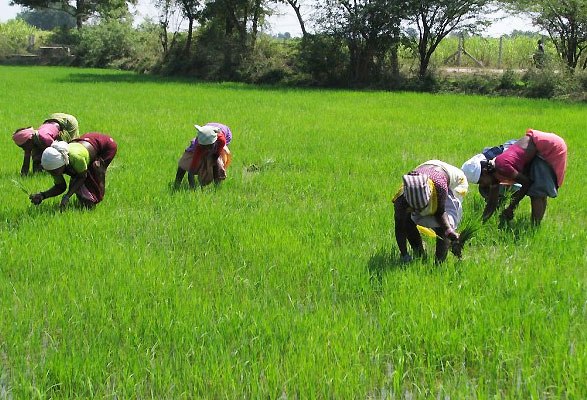
The Federal Government of Nigeria says it will achieve self-sufficiency in rice production by 2020 with sustained implementation of the Anchor Borrowers’ Programme launched on Nov. 17, 2015.
The Minister of Information and Culture, Alhaji Lai Mohammed, who gave the assurance at a media briefing in Lagos on Monday, said “the country has never been closer to self-sufficiency in rice, a national staple, than now.
“This has been made possible by the purposeful leadership of President Muhammadu Buhari, who has consistently said that this nation must produce what it consumes.’’
The minister recalled that the President launched the Anchor Borrowers’ Programme to provide farm inputs in cash and kind to smallholder farmers to boost local production of commodities, including rice.
He said the programme also aimed at stabilising inputs supply to agro-processors and address the country’s negative balance of payments on food.
“The result is the exponential growth in local rice production that has now moved us closer to ending rice importation.
“Within two years, rice importation from Thailand fell from 644,131 Metric Tons (in Sept 2015) to 20,000 MT (in Sept. 2017). That’s over 90 per cent drop.
“So far, less than 100 billion Naira has been spent on the Anchor Borrowers’ Programme that has achieved so much.’’
He recalled that in April 2008, the Federal Government had to quickly release N80 billion from the Natural Resources Development Fund to import 500,000 MT of rice in order to cushion what it said was the effect of a global disaster.
“Imagine that we have ploughed that money into rice production in 2008, we would have been exporting rice by now,’’ he said.
Quoting the Rice Processors Association of Nigeria (RIPAN), the minister said there were more than 11 million rice farmers in Nigeria, up from five million in 2015.
He said RIPAN’s total investment in the Nigerian economy was in excess of N300 billion while upcoming investments would amount to N250 billion.
According to him, the new investments will add 5,000 jobs and additional 1,775,000MT of integrated rice milling capacity.
Mohammed said the new investments would save 300 million dollar FOREX from import substitution through local processing.
He said with the significant increased production in rice paddy, Nigeria’s rice import bill, hitherto at 1.65 billion dollars annually, had dropped by over 90 per cent.
The minister said that the nation’s current rice consumption is approximately six million MT of milled rice. “In 2015, Nigeria produced 2.5m MT of milled rice. By 2017, it rose to 4m MT, leaving a gap of 2m MT.
“Our target is to fill that gap by 2020,’’ he said.
The minister added that in 2015, there were only 13 integrated rice mills and by 2017, the number rose to 21.
“It is important to note that the new investments were made when Nigeria was in recession, indicating investors’ confidence in Mr President and the Nigerian economy.
“The investments have not stopped as15 more mills are about to take off, including the Dangote Rice Mills to be established in six states with a total capacity of about one million MT,’’ he said.
Mohammed said that with increased rice production, “RIPAN members presently employ 5,000 skilled Nigerians through direct employment.
He said five million farmers were recruited through indirect employment, more than 500,000 input suppliers were engaged and hundreds of thousands of unskilled workers, including labourers got jobs.











